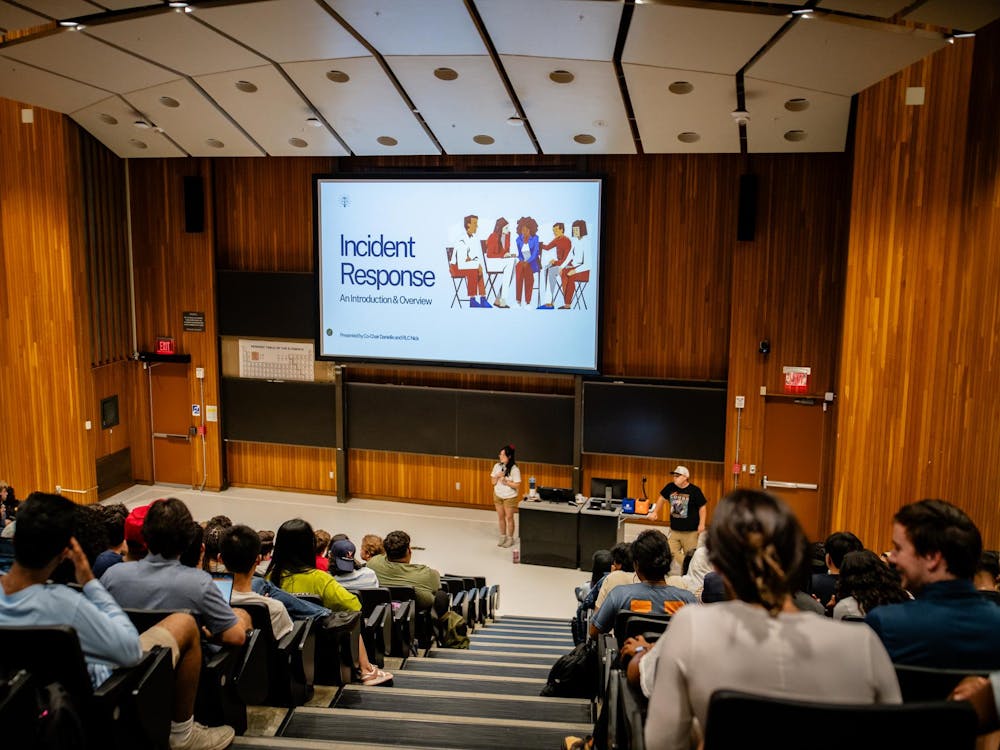On April 18 of this year, Al Thomas was named the new Charlottesville police chief, replacing his predecessor Tim Longo. Since this transition, many of my peers and I have noticed a troubling trend: policing in popular Corner bars, house parties and fraternity parties that had otherwise been left mostly alone by Longo’s staff. In my experience, traditionally, many University students have felt the relationship between the police and the student body was positive, as the police intervened primarily in cases that involved true student danger. Yet now, police appear to be cracking down in places where they never before have, and this trend is unnecessary and ultimately works against the desired goals of the force.
Of course, Thomas’ police force is increasing its presence because he feels that this is the best way to ensure student health and safety. For instance, Lt. T.V. McKean commented in regard to this year’s Block Party that “if we’re able to send a clear message that [underage drinking] won’t be tolerated at all, we may be able to push that student to make better choices.” By virtue of cracking down on parties and bars that serve underage alcohol, the logic follows that there will simply be fewer opportunities for students to jeopardize their health while they are out. Likewise, since bars and house parties are often crowded and unregulated, underage drinkers will likely relocate to a safer location if they are to drink, such as in their dorms or apartments.
Even if this is the logic guiding the police’s actions post-Block Party, it is faulty because bars and house parties are much more regulated than the police might realize. For instance, in the aftermath of the Rolling Stone debacle two years ago, the University imposed a series of rules on IFC fraternities with the hopes of ensuring student safety. At parties, fraternities must now provide food to their guests, serve only canned beer and have at least three sober brothers on call all night long. Yet perhaps the most dramatic and effective change is the institution of security guards at the door because they reserve the right to allow or disallow entry into a party, especially if they suspect someone of being underage.
While these safeguards are not foolproof, they nonetheless serve a vital role in addressing the serious risks of underage and excessive drinking. Thus, this should minimize the burden of the police force because they can feel more confident that risks are being reduced substantially at fraternity parties. Yet, the opposite has happened as the police have become more aggressive, as demonstrated by McKean’s comment, while risk the factors that often necessitate their presence have decreased. As a result, this has left students baffled and incredibly frustrated.
In one sense, this frustration is a byproduct of the infringement of individual sovereignty. My intention is not to condone underage or excessive drinking. However, when someone makes a decision to drink underage or excessively, that individual has effectively chosen to take a legal or health risk that they must face consequences for should an unfortunate incident transpire. While I understand the police find it hard to stand idly by while students break the rule of law, I maintain that it is the role of the individual to learn for themselves what risks they feel are worth taking.
If the Charlottesville police eagerly shuts down any party they issue a noise complaint for, then it is depriving students of a chance to learn for themselves how to act appropriately when consuming alcohol. Likewise, it is inhibiting the very process of becoming an adult because the force is essentially acting as overprotective parents who are wary of seeing their children get into the slightest degree of trouble, a tendency many university administrations have also moved toward recently.
As a young adult, getting into trouble every once in awhile is not necessarily a bad thing because you can learn from your mistakes and shape your behavior more positively in the future. The role of the police then ought to be to assist young adults when they have made a mistake too grave to deal with themselves, not to prevent the mistake from occurring in the first place. Thus, I anxiously encourage the Charlottesville police to reconsider its current tactics and consider whether or not this is the best way to move forward this school year.
Jesse Berman is an Opinion columnist for The Cavalier Daily. He can be reached at j.berman@cavalierdaily.com.






